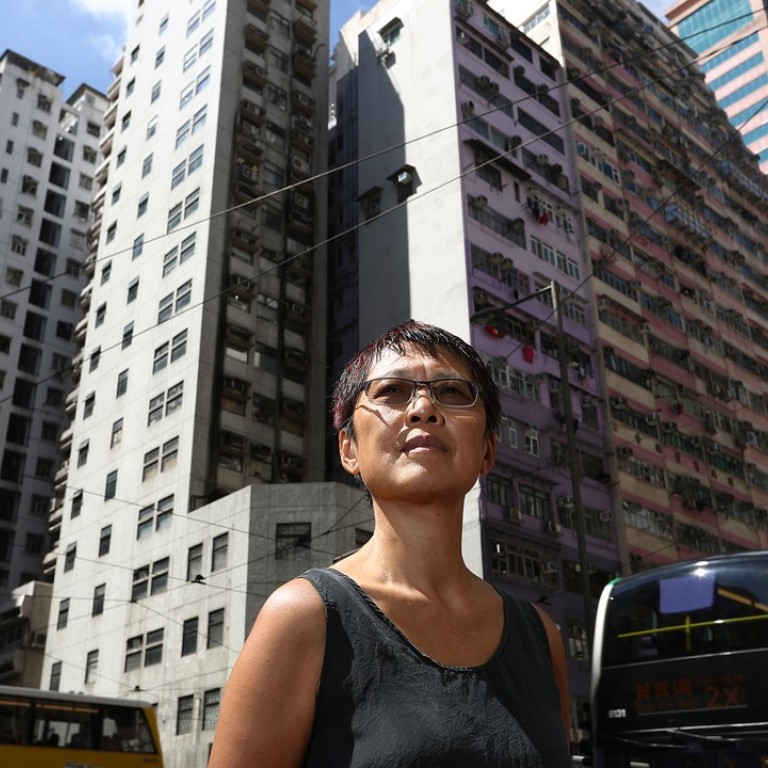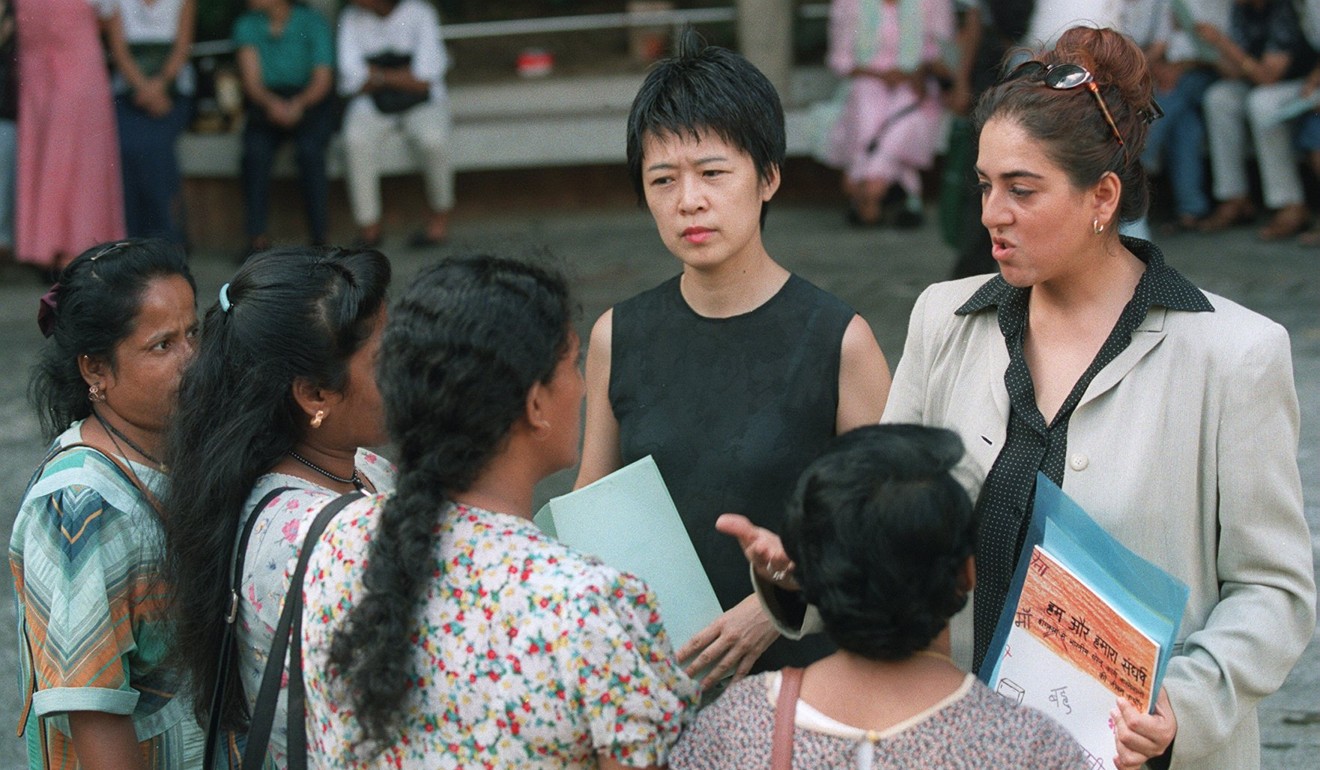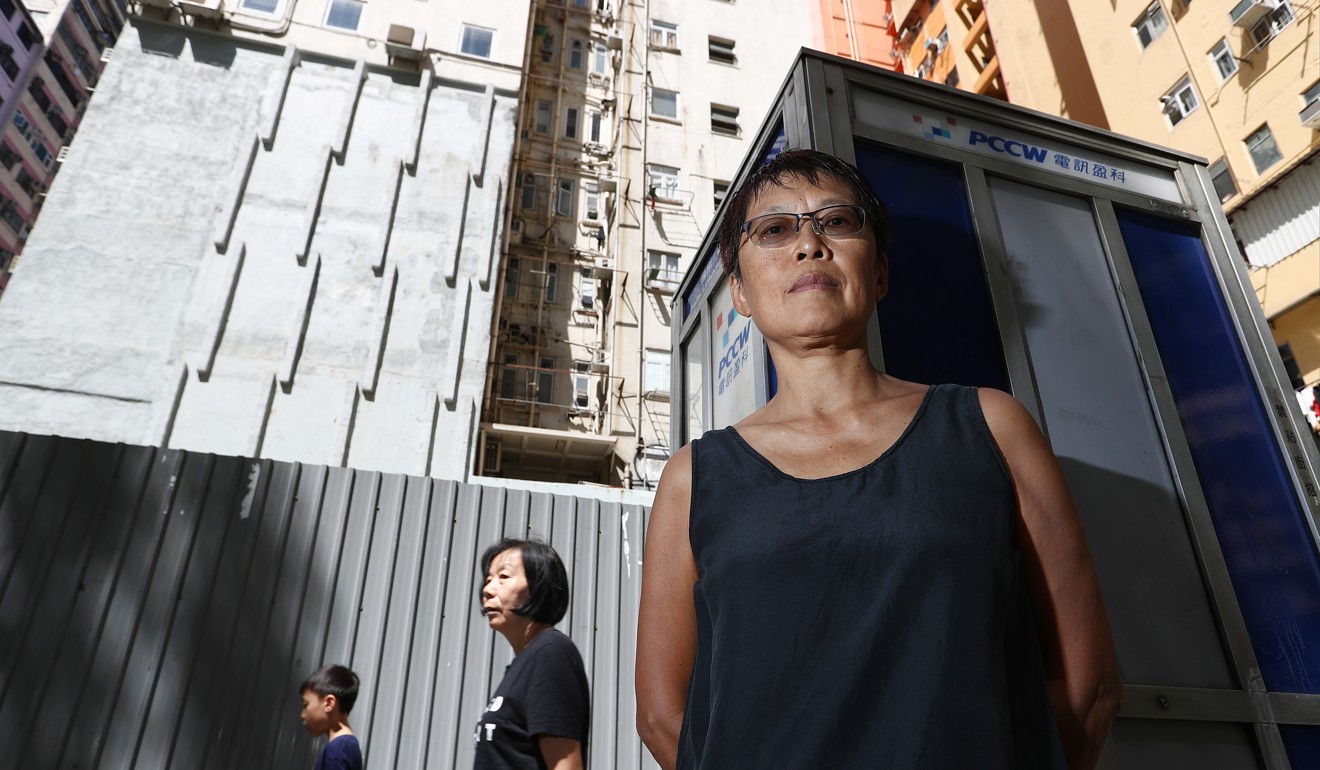
Overt racism, bad education and less freedom - a Hong Kong filmmaker on her city
Prolific filmmaker Tammy Cheung tackles complex and controversial topics such as racism, and education in her documentaries, and wants to promote the craft in Hong Kong
Hong Kong filmmaker Tammy Cheung Hung is no stranger to controversial topics in the city, releasing many documentaries over the years dealing with racism and politics.
The 59-year-old director, who once considered pursuing a career as a television reporter, made her first film Invisible Women(1999) on the lives of Indian women in Hong Kong.
The multiple award winner, who lives with her photographer partner and long-time professional collaborator Augustine Lam on Cheung Chau island, strongly believes culture is key to one’s identity, using documentaries to showcase all aspects of the city.
At her office in Wan Chai, the prolific documentary creator spoke to City Weekend about Hong Kong’s troubled school system, the territory’s declining autonomy and overt racism.

Which pieces of work are you most proud of in your career to date?
I’m not sure if I’m really proud of my work but one of the films I feel very close to is Secondary School (2002). It was very personal because it was about two secondary schools, and I went to one of them: St Catherine’s School for Girls in Kwun Tong. I guess secondary school life is a big part of our lives – it stays with you. I don’t know if I could say it left a scar on my life, but it definitely had a very strong impact on my outlook. When I was there, the school was quite open but still I found I was kind of lost, because I didn’t really enjoy it, and I found it quite boring. However, when I went back to film at the school, I realised: “Wow, actually it’s not a very good system.” I felt really sad because young people spend five or six years of a very precious period of their lives in that place. I don’t think the curriculum is very good or very useful. There are things that are not very constructive, to say the least. Compared with other films I’ve made, Secondary School was very personal. It’s not healthy for society when the education system is not working. We had a showing of the film recently – a lot of people came and they had a very strong reaction. The system is not getting better, some people even say it’s worse now. It’s kind of depressing.
Has it become easier or more difficult to make documentaries about Hong Kong?
It’s easier to acquire equipment, because it’s cheaper and of better quality, and easier to use. Also, since we started working on festivals and film screenings, it seems there are more people who have learnt something about documentaries, so that helps us. But in terms of funding, which is very important, and also distribution and exhibition of films – those areas are still very difficult because most of the government film agencies focus their efforts on feature films, not documentaries. I guess ... for them, film is a business. So if you are selling documentaries, they don’t always consider it to be a profitable product. I would say the support for documentaries in Hong Kong is not enough, particularly when you compare it with Taiwan. But I think people in certain positions who are in charge of funding are starting to see the value of documentaries. It might just take a while to change [their mindset].
How about restrictions on what you can film?
It’s not a big problem to find individuals. There are tonnes of topics I find interesting. If one person says no, then I will just find an alternative. In terms of the government, yes the political climate after the “umbrella movement” has made things more difficult. The Hong Kong government and the mainland Chinese government are very concerned about [how Hong Kong is presented]. They put a lot of pressure on the media, as well as on art and culture. In 2003, I was quite ignorant when I made my film July about the huge demonstration [when 250,000 people protested over Article 23 of Hong Kong’s Basic Law dealing with national security]. We thought it was not particularly critical of anyone, we just wanted to show the big march. Then I realised: “Oh my god, they didn’t like it.” Because afterwards, funding from the government was harder to acquire. I had friends working in the government telling me: “You have to be careful.”
Your film, Invisible Women (1999), looks at the lives of Indian women in Hong Kong. What progress do you think has been made for women from ethnic minorities here since then, and what problems do you think we still need to overcome?
My impression in general is that we haven’t made much progress here. We have this hierarchy: white people on top, then Chinese, then people with brown skin like those from Southeast Asian countries and Indians, then Africans. Most people don’t talk about it. We still consider ourselves as victims, and yet we look down on other victims.
When I first came back from Canada more than 20 years ago, I was asked whether the racial discrimination in Canada was serious. I said: “Yes it was bad, but not as bad as in Hong Kong.” The person who asked me was shocked, because most people here won’t admit there’s a problem.
Where do you see racial discrimination at its worst here?
I see it particularly in relation to domestic workers – they are treated as inferior and second-class citizens. I have seen Hong Kong people demand that a Filipino woman give up her seat for them on a bus, and she will do it, and I wonder why. Even with strangers, she will act like she is serving them. I’m not blaming her, but I think a lot of Hong Kong people will treat her like that. It’s very unpleasant and embarrassing.
There is evidence Hong Kong is experiencing declining autonomy. Meanwhile, reports say increasing numbers of Hongkongers want to leave the city. What is your perspective on both of these issues?
I definitely think autonomy is declining, especially after what has happened in the last couple of months, and since the “umbrella movement”. You have seen the government tighten its control on a lot of things.I have friends who have left or who are talking about it, but I always find that being an immigrant is not easy. Inevitably, you become a second-class citizen. For instance, if you cannot use your own language, you are handicapped. Even if you are fluent in the foreign language, there’s a lot more to the culture. When I lived in Canada for a while, I was younger and I had a great time, but now I have this idea that since I’m working in documentaries, I will do it in Hong Kong, because culture is one’s identity. And if you lose that, then you lose a big part of yourself. And I think a lot of immigrants, particularly the Chinese people I met in Canada and America, on the one hand they were very proud of their new identity, but on the other, if you said you were going back to Hong Kong they had this look of envy on their faces. And I know a lot of Hongkongers overseas, who return to Hong Kong as tourists once a year, not even because they have family here. I find that very funny.

You have never shied away from covering political stories in Hong Kong. What did you think about the jailing of the three democracy campaign leaders involved in the Occupy protests?
It’s very disappointing. I don’t know all the legal contexts, although I listened to some interviews with lawyers about it. But I do feel this is a political issue, not just a legal one. If there is a silver lining, then it is that more young people will become aware about politics. Because still a lot of young people are not very aware of their freedom. We have a poor education system. As adults, we spend a lot of time eating, shopping and travelling. But we can’t just do those things only. We have to know what is going on. We can’t just know about Facebook. We need a well-educated population. I don’t mean just getting a PhD, I mean having knowledge and being interested in facts and culture.
Can you tell us anything about your upcoming projects?
We are holding the 10th edition of the Chinese documentary festival. We started it in 2008, because we saw very good films in China but realised they were not being shown in Hong Kong. So we started a small festival. It’s not been easy to establish; it’s taken a lot of energy and time. In the last nine years, it was mainly Chinese films, from Hong Kong, mainland China, Taiwan, and sometimes Macau and Singapore. Starting from this year, we wanted to expand it a bit more, so we have an international section, to include films from Europe and Southeast Asia. We also have a Hong Kong section, which we really want to promote, and we have been excited to promote it since it launched in about 2013. But this year, there are fewer films from mainland China, because of government policies – authorities are definitely discouraging documentary making and there are therefore fewer people making them. Still, I’m so happy we can hold the documentary festival again, because funding has been difficult.
Meanwhile, I also have two films that I’ve shot myself, but I haven’t had time to edit them. My health is a bit unstable sometimes, but I’m hopelessly optimistic that I will find time to finish them. It usually takes me four to five months to edit a film. When I first got into filmmaking, my friends and family, including my mother and former boyfriend, asked why I did this. But I hope we can survive, I’m hopelessly irrational about it.
BEAUTY IN TRAGEDY If you had to choose, what would be your favourite documentary or film of all time?
High School (1968) by American director Frederick Wiseman. It was about a school in Philadelphia, showing the problems in the American school system. That was the inspiration for my film Secondary School. Wiseman is in his late 80s now and he’s still working. He uses a “direct cinema” style – [which means] it has no voice over or interviews – and this is the style that I have copied.
Which director would you love to collaborate with?
Polish director Krzysztof Kieslowski. His most famous work is the “Three Colours” trilogy: Red, White and Blue. His style was very special and very poetic. It is also the way his films have a strong sense of the “tragic”. I don’t see this often in Hollywood films. His films are sad but beautiful. But recently I met [some] film students here and they didn’t know of him, which is a sign of how bad their education is.
If you could have pursued another career path, what would you have done?
When I was young, I wanted to be a dancer, but unfortunately I didn’t have the body. I liked modern dance. I would like to try swing dance. I think it looks really fun but I never find the time to do it. I’m too old now. I also would’ve loved to have been a novelist but I can’t write very well. I find it more comfortable to tell stories with a camera.
What do you do to relax in your spare time?
I enjoy gardening. But unfortunately the two recent typhoons came and so my garden is now not in very good shape. I’m very fortunate to have a garden – well, a backyard with lots of plants which we call a “garden”. I had an ambition once to grow vegetables but I wouldn’t be able to work full-time if I did that.
Which hidden corner of Hong Kong do you enjoy visiting and why?
I don’t go out much. I stay home a lot when I’m not working, so it would probably be Kwun Yam Wan beach on Cheung Chau. This is the best place for me. “Kwun Yam” is the name of a female god. It’s quieter than the neighbouring Tung Wan beach.

